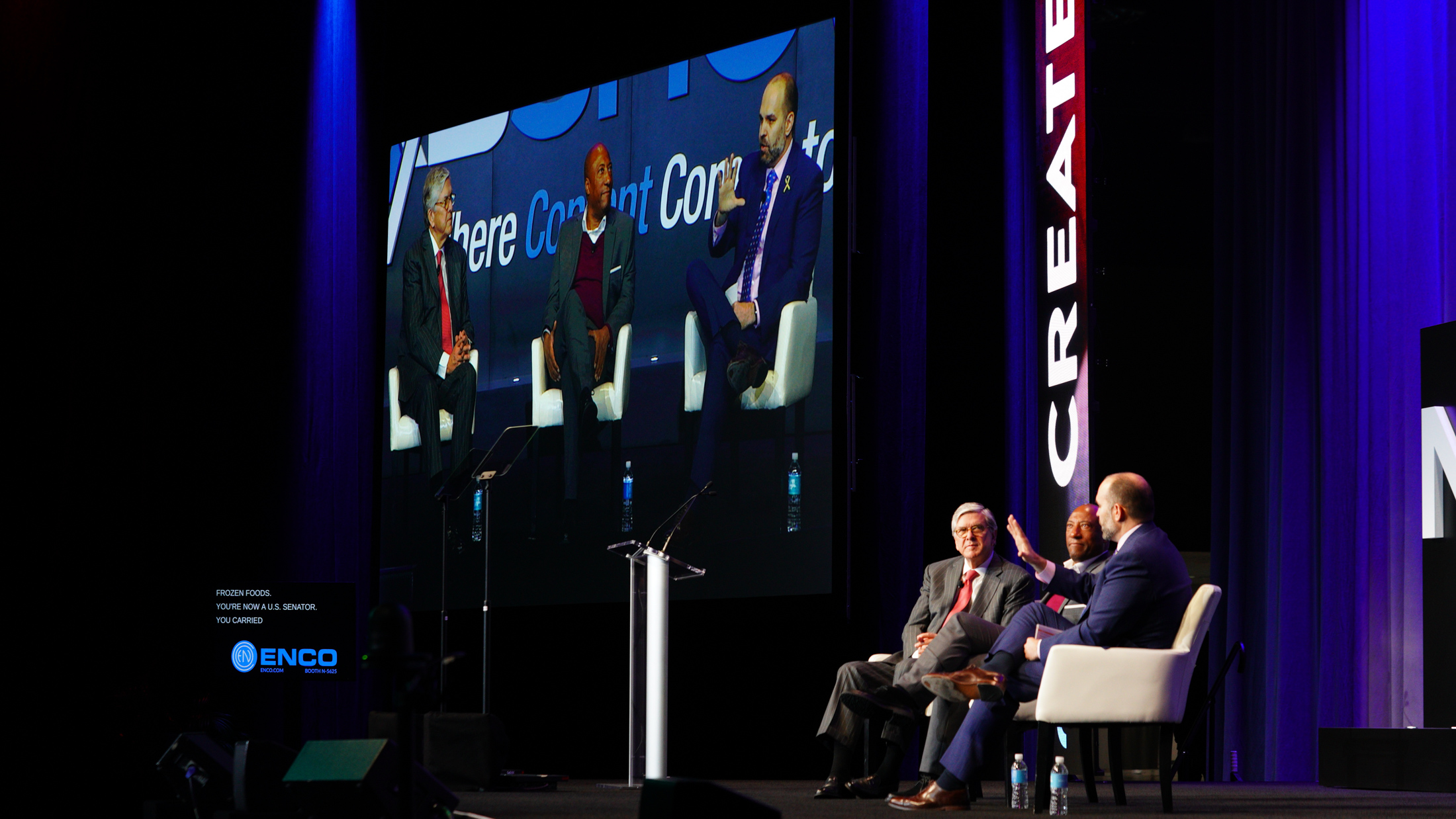Interview with Chris Brown, Executive Vice President and Managing Director, Global Connections and Events for the National Association of Broadcasters.
– When and where were you born, and what was the occupation of your parent?
I was born not too far from Washington DC. Actually, my father was in the military, so I was born in a military hospital on Fort Belvoir, which is just outside of Washington DC. My father was stationed at the pentagon, in DC, so we spent a few years in Washington.
We spent about three years in Bangkok and I was aware enough to just understand a little of their culture. We got exposed to everything, from traditional Thai dancing to lots and lots of water buffalo and their water ways and boat systems. It was an interesting place to live in. Though I’ve not been back, I know it’s a very different place now than it was way back then, but it was fascinating to be exposed to all that.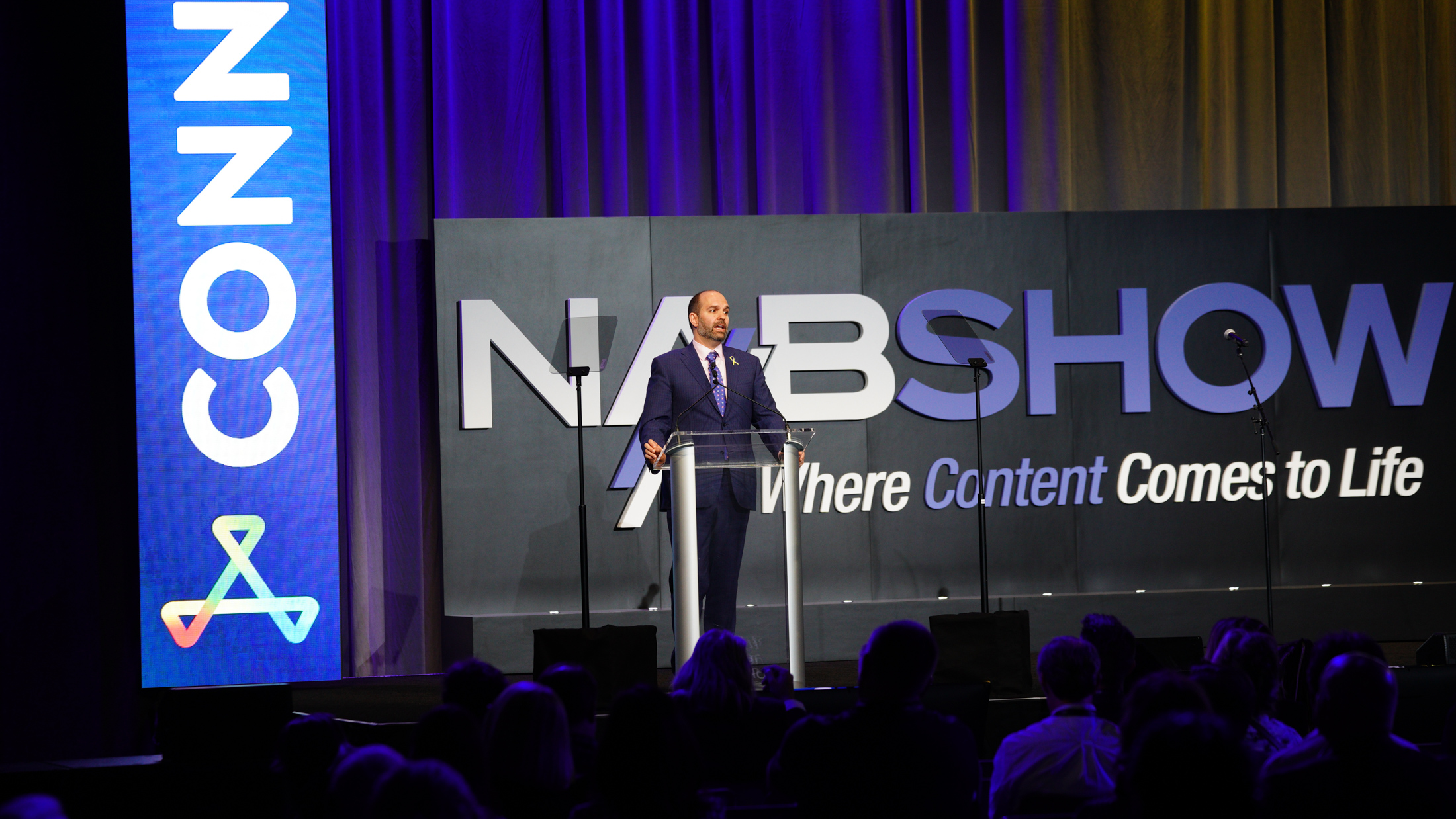
– So, how long did you study in school?
Just finishing that whole trajectory. My father retired shortly after he came to the United States, we lived in Virginia for most of the rest of my years before I then moved to DC. I went to a college in Virginia, which is The University of Virginia, in Central Virginia. I graduated college and went straight into a job in Washington DC, worked for about 8 or 9 years in and with a non-profit association, and then went back and got my Master’s Degree in Business Administration from the University of Maryland just outside of DC. I did that while working.
– Can you say a few words about your childhood, and what subject was your favorite in school?
I was drawn more to English because I was good at writing, reading and those kinds of subjects. Oddly enough, I’ve passed that to my kids because all my kids ended up being English majors. The two eldest children did anyway, which is great because I think communication in general, communication skills are critical and so the ability to write and verbally communicate effectively are just critical, and fornot any field. I was not very interested in science or those science-related subjects. Though I was decent enough at Math I didn’t necessarily love it. In college, I received a degree in business with a focus on Finance, and a minor in psychology. Interestingly enough, with that finance background, I ended up with my first real working job with what was at that time one of the big eight accounting firms in the US, called Arthur Andersen. I came in thinking I was going to be doing more accounting-related things but ended up on the consultancy side, which is represented today in a spinoff of Arthur Andersen called Accenture. I was learning IT and IT consulting at the time, which was a good foundation for me.
I learned very quickly that I didn’t want to be an IT professional, which was in hindsight may not have been the smartest thing because if I’d stayed in it back then, and this was in the early ’80s, I would have done very well in it. If I’d continued to do that, I’d have learned how to program, learned how to design IT systems.
I had some great experiences there. I had just determined that, for me, sitting in front of a computer screen all day and programming codes was not really what I wanted to do at that time.
I understood that my strength was tied to communication skills and I needed to be able to interact with people and so I considered a career change looking for an opportunity to play to those strengths..That is ultimately what led me to make a change to working in the non-profit sector, with a focus on producing events.
– You’ve had a fantastic childhood. You were in Germany and Thailand. Why didn’t you choose a Military career, like your father?
You know what? You’ve asked a great question and I have to tell you that I had tremendous respect for the military. It was a great way to grow up. I think I learned quite a bit about values, connecting with other cultures, and service to country. I was extremely proud of my father for his service. He served in World War II and in the Korean war. It was one of those things that also taught me adaptability because as you are moving from country to country or station to station, you have to learn how to adapt and be open to making new friends everywhere you go. You have to learn about new cultures and all of that.
I think the reality of the matter is that as I was becoming a young adult we were in a time of peace, and there was no sort of call to country service from that perspective. So, I started to build an interest in business and business-related types of matters. I wanted to set my path and do something a little bit different.
My older brother also was in the service, but for a much shorter time, and not asa career service person. He ended up serving for five or six years and then became a journalist. So, we do have a military traditional background, but I think it was mostly as a sign of the times, the time I was going through school and coming out of school, there wasn’t a primary sort of threat or need to go in the direction of serving the country.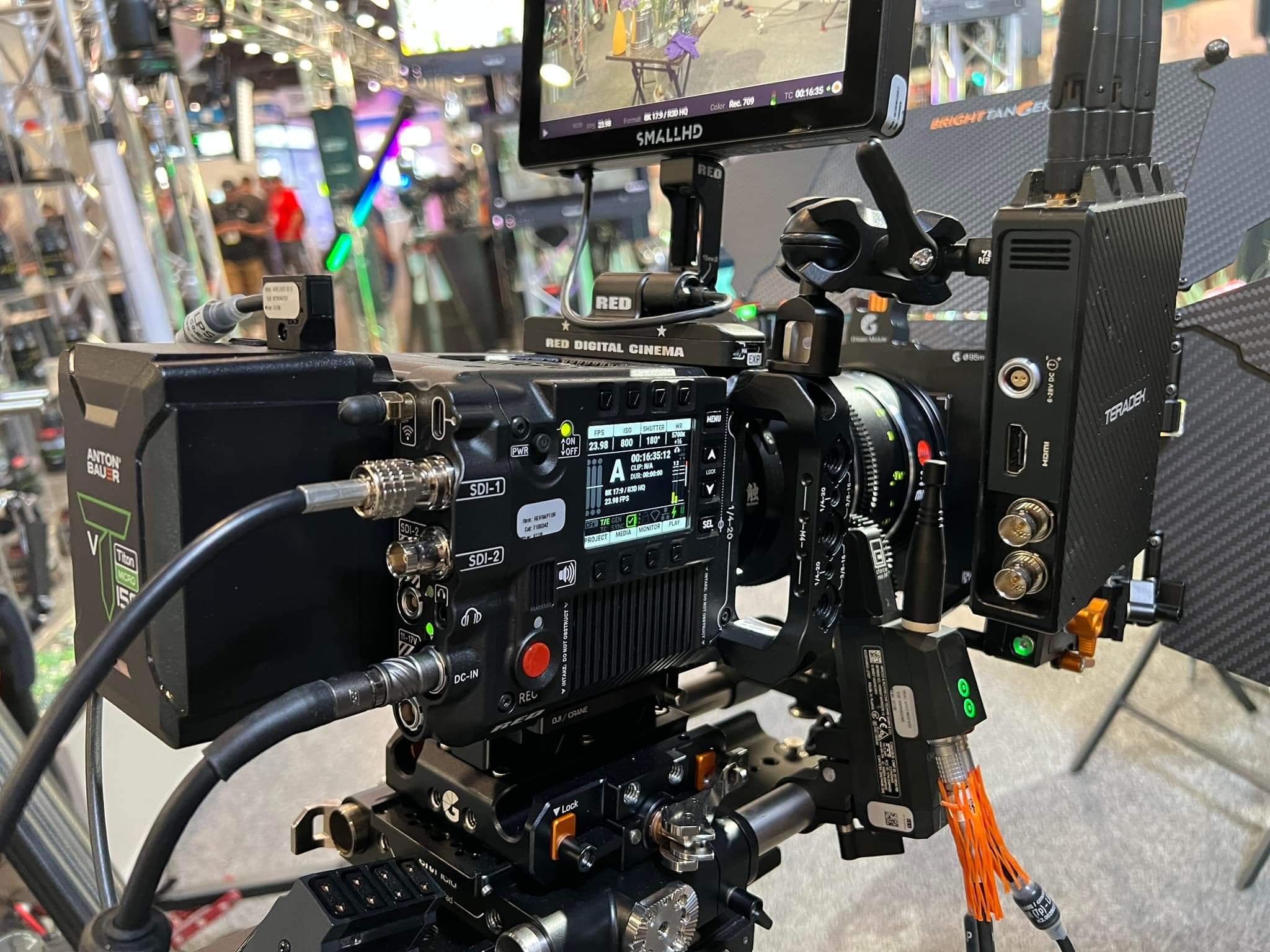
– What can you say about Arthur Andersen where you first worked?
As mentioned I was employed designing and building IT systems for companies and government agencies. I worked on projects for Boeing, the Government Accounting Office and the U.S. Postal Service as examples. The work was very technical, and I learned from the ground up. It was a great learning experience, but the type of work was just not stimulating for me. I needed to do something that allowed for more opportunity to interact with teams and people. And this is what led me to fall into the events business. I ended up working for a non-profit association much like NAB, but it represented a very different industry, which was the food industry. I worked for an organization called Food Marketing Institute, and it was an organization representing at that time, the supermarket industry primarily in the US. They have a very large event that they did in Chicago and as it happens, I came in to help manage the event, mostly on the sales side. I managed the sales team initially for that organization, helped build a sales team for them, helped build that event to what ended up being one of the top thirteen in the country. It wasn’t quite as big as NAB, but it was a 500,000-600,000 square foot event that drew about 35,000-40,000 people. And for me, that was a total career change from where I was headed. I couldn’t continue to stay on an IT path and be happy. Particularly being on the sales side, gave me that opportunity to connect with people daily. I used those communication skills to get involved in organizing a very large event that has a lot of moving parts and details to be planned which I like. So, I ended up with that Organization for nine years and then decided to stay in the event business. I tried the for-profit side of that and worked for a good-size for-profit organizer for a short period helping build a new business aimed at managing events for non-profit associations that don’t have enough staff to manage their own events.
I stayed in Washington DC with the mission of helping them to open an office in DC and so I did that for about a year and a half and realized for me, there were two things: one, there was no particular cultural fit between the way I like to work and the way that particular organization worked, having come from the non-profit side, I tended to approach everything there from a broad perspective of serving a particular community; and I thought that it would be something that I could adapt to, but in the end, I just felt that that organization wasn’t a good fit for me. So, I jumped back into the non-profit side and joined an organization called The Personal Communications Industry Association (PCIA), which was a wireless communication association. It was the bridge between the pure old analog – the old cellular mobile service- to what everybody has now, which is the digital cellular.
And so, I got involved with them, and also with planning their events. They had a relatively small event at that time but given that mobile communication was growing, we were able to grow that event. We doubled it in about three years from where it was. The event was attracting about twenty-five to thirty-thousand people. It was at that time, the largest event for that segment, and that was exciting. That was an exciting time for me. Just because of that technology, things began to change quickly. We were able to grow that event and watch it grow further. There was just a lot going on then. I learned quite a bit in three short years. What got me from there to NAB is that all the dynamics changed in the wireless industry primarily driven by the industry’s consolidation.
At that point, everything became digital cellular technology. So, the side that we were representing was no longer unique, and there were some consolidations among industry organizations. And for me, I could see that it was going to be a difficult next stage for the organization I was with.
So, it was fortunate that I already had some good connections into NAB and was able to time it to a point when NAB was going into transition. They happened to be looking for someone to come in and run the convention for them, and I jumped on it because I also realized at this time that I enjoyed the communication and media technology side of things, and I was excited about being able to have the opportunity to work on a show like NAB. I started working at NAB in 1999.
– What was your first position at NAB?
I was hired as a Senior Vice President of their convention team. It was back then organized a little differently than it is now. There were two separate teams; one was managing advertising in sponsorship functions, and the other was primarily managing the expo component and the operations of the show which was the part I was brought in to oversee and manage across the board. So, that included the operations, the marketing, and the sales side of managing the event.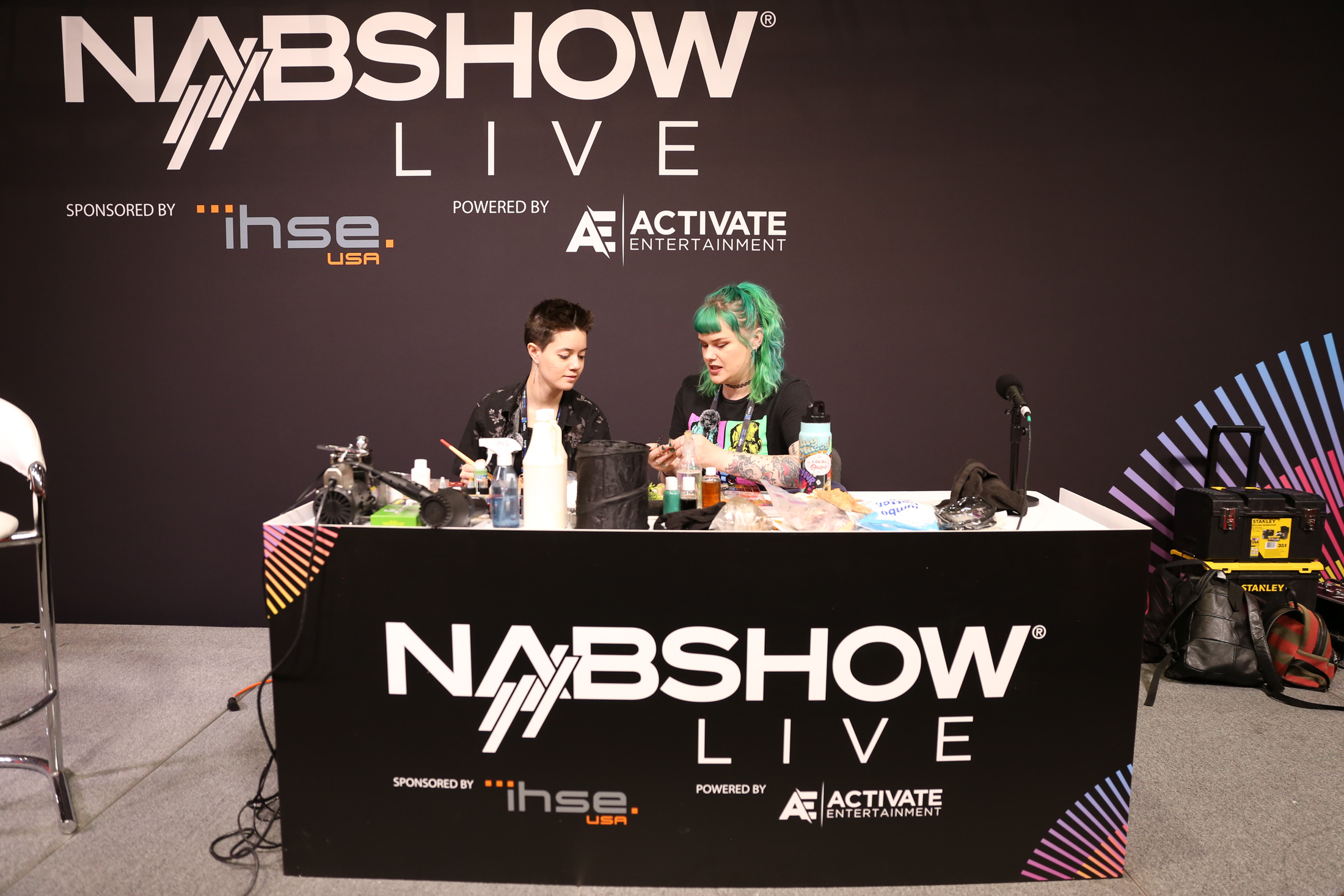
– Was it your idea NAB added a show in Shanghai, somehow?
I was certainly involved, but I’m not sure I can take full credit for the idea. The truth there is that we had been in conversation with a government entity in Shanghai for several months, if not more than a year, about the possibility of doing an event in Shanghai. There was an economic group looking to bring more events to Shanghai in particular, and we felt at the time, that the timing was right, and given the fact that we thought we had a good partner there locally who could help support us, we had a good chance of being able to make that successful. But we did decide to take a half step before we launched fully, and I do think that was an important and good decision. We launched with just an executive conference in its first year that attracted between 500-600 people. It helped us establish our name and our brand in the market and extend our connections and contacts there. So, it set us up very well for a step into being able to launch as a full bloom exposition with the conference, which we did the next year. So, obviously, circumstances have changed quite a bit there in China, and I think we would absolutely keep an eye on that but, I’m not sure we would be back there any time in the near future.
– What would you say are the main achievements of your career?
A couple of things; I had a short tenure with the one organization PCIA (Personal Communication Institute Association), that was exciting for me and it was great to be involved and helping to guide a doubling of growth of an event to develop it into what was a major tradeshow for several years there. That was where I learned what it means to be an entrepreneur within an already existing organization where you can move quickly enough to build out things, to take some chances that you might not otherwise take. So again, I’m proud of what we were able to accomplish there.
I would say, here at NAB, there are all kinds of things of which I’m very proud, not the least of which is that we’ve been able to continue to keep the show relevant though there were lots of ups and downs in the industry, lots of changes. I’ve been here through two significant recessions in 2001 and 2008, and I’m proud of the fact that we were able to recover from those recessions which had a deep impact, not just on our event but for many.
The fact that we were able to recover faster the second time, 2008, I think that was another kind of indicator of two things; one, just the general strength of the event as a whole, the strength of the brand, and also, our ability to adapt and to be resilient when coming out of those kinds of situations. So, I will point to those achievements as helping to get NAB to the point where it’s consistently been one of the top ten tradeshows in North America and one of the top five in Las Vegas, which is one of the biggest convention cities in the US. Also, outside of CES, we are the most significant tech event held in the US, annually. So, I think I’m very proud of all these. And there are several elements of what we’ve done with the show that I’m proud of as well, all kinds of things that I can point toward. We’ve tried to push the event in as many areas as we possibly can, test new ideas each and every year, in particular, we’ve been successful in introducing new types of education delivery on the expo-floor in the tradeshow, new types of engagements, expand the education program, and strengthen the education program. I think those are some of the things I would highlight.
– Tell us a few words about the pandemic and the NAB show and how it has changed the company? How has the pandemic affected NAB shows and how do you think the world would change after you retire?
It has had a profound effect obviously. Up until 2020, the show had been held every year since 1923 except for one year during World War II. So not only was it canceled in 2020 but it was canceled again in 2021. Those were very difficult decisions to make. They had a significant impact on NAB as an association and in terms of our ability to continue to deliver services and serve the industry as we do happily.
The historic success of the show, in particular, in the last fifteen to twenty years put the organization in a strong enough financial condition that we could survive. That’s two years of cancelation and we are still financially healthy, that’s the good news. But like everybody else going in, we’ve had to continue to adapt. We launched a brand-new digital platform called NAB Amplify early last year, that was something we’ve been working to do for a number of years and basically, COVID was the catalyst that pushed us to really accelerate the development of that, and that digital platform is now meant to be our way to connect to the entire industry on a year-round basis. It’s still evolving, we’re not quite a year into the development of that platform. And I would say that it’s still not a full-blown version of our vision for what that platform should be. We have a lot more functionalism that we want to build in, we have a lot of content we’ve been able to deliver there and it’s a great platform for content delivery, but it’s always been meant to be a connection point for the industry, so we want to focus a bit more on how we can engage the community by networking, product discovery, a whole range of other elements there.
So that’s certainly been one big development that has come out of the pandemic situation. We have also continued to evolve the way we produce the show, the elements, and how we organize the show. I think the one thing we understand going forward is that everybody has changed their perception of face to face, everybody has changed their perception of their own value of time, given that, people have gotten used to working in a remote setting, from home. We need to be able to make it clear to people that there’s a high value for them, a high rate of return on time for them to travel and participate in shows again, and to want to come back and want to participate. And I think they will, but we haven’t taken that for granted and so for example, for the show that we have planned for April, we’ve redesigned the whole event around a simple set of content areas to better help people coming to the show understand how they can navigate the various elements in the show and get to the informational content that is most relevant to them. We’ve basically done that by organizing everything into three major content pillars, named Create, Connect, and Capitalize.
And so, the show has been reorganized around those three pillars. The educational content has been organized around those three pillars. Networking events have been linked and tied to those three pillars. So, the idea is, that, if you see yourself more in the Create side of the equation, you should zero in on everything that is linked to that content pillar, Create. If you’re more linked to the distribution and networking, satellite elements, mobile delivery, 5G, etcetera, those would be the elements in Connect, you’ll be guided to that. And then on the Capitalize side, which is primarily geared to monetization, the folks who are in the business side of this try and understand how to make money on the content that they are producing and distributing. The other piece that is brand-new for this year is something we have labeled “Intelligent Content.”
Intelligent content is really tied to everything that data covers in the industry and how data has now become a key driver, not just in how the industry interacts with its ultimate customer, but also in how content is produced and distributed. So, this is getting very deep into AI, targeted advertising, personalized content, and advertising. It is also pointing towards some of the buzzwords, some of the new elements that are building around the metaverse, NFTs, Blockchain technology in general, those types of things. So, that is a brand-new category that will bring in some brand-new companies. This will include some of the companies that have been with us but some other great companies, such as Amazon Web Services, Microsoft andMediaKind, are some of the big ones that are anchoring the Intelligent Content area. So, just back to answer your question again, we did not necessarily take it for granted that everybody would just start coming back to shows and would see the value, we understand that people have been able to stay productive, or adapt, or find ways to stay productive working differently and without the benefit of going to the event. So, for us, the event has got to be focused enough and organized well enough so that everybody who’s coming can walk away and know that they’ve gotten the most of that event and gotten the information and content that they want.
So, if anything the pandemic has pushed us to raise the bar and how we are doing things, there’s a whole bunch more behind this interms of the tools and the information and the way we are going to try to help people navigate the show. Obviously for 2022, the other direct impact is, that we’re still going to be in a situation where there would be some types of health and safety policies and protocols. Eventually, we hope those become minimally necessary, but I do think by April, from a global perspective, certainly, we would be moving toward the end of this pandemic. We’re moving in that direction, which I know we are all very anxious to see happen.
But by April, we would still have some health and safety measures in place. Currently, we are still working around a policy that is going to require everyone to provide proof of vaccination or proof of a negative Covid test. We may change some of those elements going forward depending on how quickly the case count and the numbers in the pandemic can drop. There are states here in the US where mask mandates have been lifted. Nevada is one of the states that has lifted that mask mandate; that just happened. So, within a few weeks we may not have a mask requirement anymore, we’ve gone out with some surveys to gain feedback from attendees and our exhibitors, just to make sure we understand what their wishes are, and around making sure the event is safe. So, these are all the things that obviously we never had to think about or worry about pre-pandemic and I do think it has raised the level of consciousness around health and safety generally. As I said, I think even out into the future here, there would always be some measures that we’ll have in place, some few things we would do that we weren’t doing prior. We would be more aware of things like air circulation and keeping surfaces sanitized and all of those kinds of things, at least just higher up on the priority list than they may have been in the last couple of years.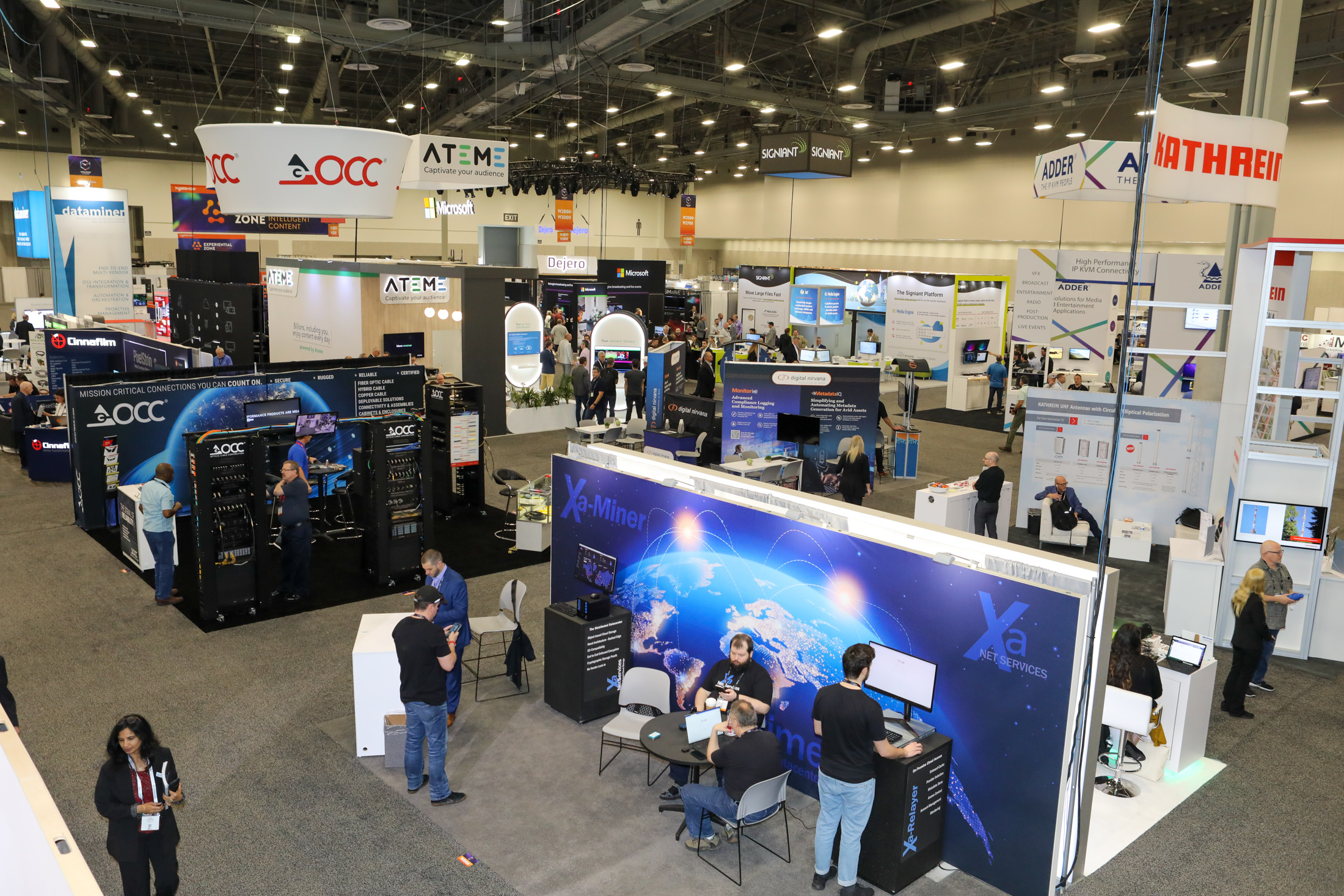
– Thank you for the interview. But please, can you tell us a few words about your family; that is your wife, your children, please tell us a little about them.
I’ve been married for over forty years, believe it or not. I married my high-school sweetheart, it’s one of those stories and we actually got married before I had finished my time at the University, Virginia. So, we spent the last few years there married and weren’t thinking we would start a family right away, but I had my son, my oldest son the year after I graduated, then I had a second son another couple of years later and we rounded up the team with a daughter which was our third child and probably the only one that was planned, truly planned. And then, we thought we were done, but we went on and had our fourth son.
So, I have four children, all through now into their adulthood. I have two grandchildren by my oldest son who are seven and three. And it’s one of the nice things getting married very young, I’m not at a cane or walker stage, as a grandfather I can still enjoy my grandkids. And my second oldest son is having a baby right after our show, probably the first week in May, so the third grandchild is on the way. So, I have those two married, already.
My daughter is in her late twenties, she’s not married, my youngest son is in his mid-twenties, still living with us, and working through what he wants to be.
My oldest son and my daughter, believe it or not, are both in this similar kind of business. My oldest son works for a company called National Trade Productions that produces events all over the country and actually manages events for other organizations. He’s been in the business for about eight or nine years. And then my daughter just got into the business two or three years ago, working initially for what is the largest packaging machinery show in the country called Pack Expo. And now she’s working for a smaller non-profit that manages events for the banking industry. So, two of the offspring are into the event business, so it’s kind of interesting.
– Ok, thank you very much for this interview, we would see you very soon. We appreciate your time spent with us. Thank you very much!